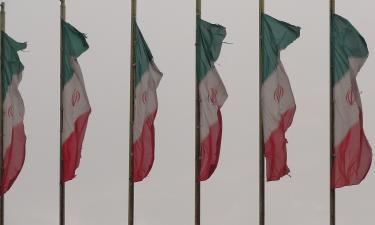BP To Be Blamed for All the Sins of Human Civilization
British Prime Minister David Cameron paid his first visit to the United States on July 20-21. The head of the British government arrived in the United States to discuss the situation with the oil spill in the Gulf of Mexico, which occurred through the fault of British Petroleum.

The American government has been rather generous with its criticism of BP lately. Barack Obama once said that he was very sorry he did not have the powers to sack the company's managers. He also ordered to introduce a moratorium on deepwater drilling in the Gulf of Mexico. To crown it all, many US companies demand BP should compensate their multi-billion damage.
The company has been struggling with the consequences of the tremendous natural disaster since April 20. On July 16 it was reported that the ruptured pipe had been finally capped. However, the success did not last long, and oil continues to gush into the waters of the Gulf.
Russia Today: Oil spill still spilling, yet again
"The story with the oil spill is not a good one for the US-British relations. However, it will not undermine the strategically important ties between the two countries. Washington and London have never been enemies, even in complicated situations like the Falkland conflict between Britain and Argentina," Valery Garbuzov, deputy director of the Institute for the USA and Canada of the Russian Academy of Sciences told Pravda.Ru
"The fundamental basis of these ties was mostly laid during WWII. The ties grew stronger during the Cold War. Today one may say that the countries have special relations with each other. They are not just the relations of two allies. The USA views Great Britain as its most relevant partner in Europe," the expert also said.
England 's unwillingness to ruin special relations with the USA explains Cameron's behavior in Washington. Prior to the visit, the British PM stated that he would advocate BP's interests in America. Afterwards, when he realized that such a point of view did not find understanding with US officials, he decided to play the role of a judge.
David Cameron started speaking of new facts, which in no way could improve BP's image.
It was reported shortly before Cameron's arrival in the USA that BP was interested in gaining access to Libya's oil fields. Lobbying its interests, the company exerted influence on the British government in the release of a Libyan national Abdel Baset Al-Megrahi. He was found guilty of organizing the explosion on board a US plane when it was flying above the Scottish town of Lockerbie 22 years ago. Over 200 people were killed in the terrorist act.
Last year, a court of Scotland released al-Megrahi "for health reasons." Libya welcomed him like a national hero .
The US administration was seriously concerned about such a decision and urged the British authorities to cancel the court ruling. BP does not deny its great interest in the Libyan oil contract, which was eventually signed. However, the company strongly rejects its implication in the release of the Libyan criminal.
The US Secretary of State Hillary Clinton and British Foreign Secretary William Hague had a phone conversation before Cameron's visit to the USA. The British official acknowledged that the release of the Libyan citizen was a mistake. On July 21 Cameron said that he ordered to investigate the rumors about BP's involvement in the release of Al-Megrahi.
Cameron did not say anything specifically. He only said that it was the largest mass killing in the British history and added that it was not business that released Mergahi from jail. Cameron also added that it was the Scottish, not the English authorities that decided to set the criminal free.
"The question about the deal, which could grant BP access to oil contracts in Libya is a difficult one. No one will ever confirm any details about it officially. Economics and politics are very close to each other in such matters - it's a fact. I'd like to remind here that British media outlets said once that Britain's participation in the US-led operation against Iraq was based on the fact that the United States refused to support Ireland in Ulster," Ivan Rodionov, a professor of the Higher School of Economics told Pravda.Ru.
"As for large companies like BP, Western governments always support them to a greater or lesser degree. Moreover, it is considered a matter of state importance. That is why I do not think that it will be strange if the connection between the release of the Libyan terrorist and BP's oil contracts in Libya is confirmed," the expert said.
BP has become a monster after the disaster in the Gulf of Mexico. Now they can remind the company of its other sins which are plentiful since 1990, the year, when the company was founded.
Sergey Balmasov
Vadim Trukhachev
Pravda.Ru
Subscribe to Pravda.Ru Telegram channel, Facebook, RSS!





